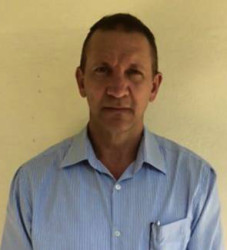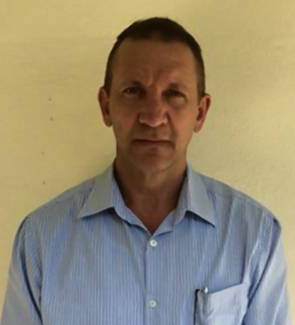MIAMI, (Reuters) – A Venezuelan state prosecutor who helped put prominent opposition leader Leopoldo Lopez behind bars said he apologized to the jailed man’s parents by phone this week after fleeing the country to avoid pressing the government’s trumped-up case.

“I’m ashamed. I broke up a family,” Franklin Nieves told Reuters in an hour-long interview in Miami in which he accused the Venezuelan socialist government of pressing him to use false evidence to convict Lopez.
“In Venezuela fear rules; that’s the way the law is,” he said.
Lopez, 44, was sentenced to nearly 14 years in prison in September on charges stemming from his role in a wave of protests in 2014.
Nieves, 51, said he fled Oct. 19 to avoid having to handle an upcoming appeal in the Lopez case. He flew to Miami on a tourist visa via the Caribbean island of Aruba with his wife, a journalist for a state TV channel, and their two small children.
“I knew it was time to tell people the truth,” he said. “I wasn’t going to defend the indefensible.”
Antonieta Mendoza, Lopez’s mother, told Reuters she forgave Nieves because of her Catholic faith but did not trust him.
Nieves said he had begun the process of filing for political asylum in the United States but has had no contact with U.S. officials since his arrival last week.
Venezuela’s chief prosecutor this week denied her office had put pressure on officials to use false evidence in the Lopez trial.
Government leaders say Lopez incited violent street protests last year that left 43 people dead.
Opposition leaders claim Lopez’s trial is further evidence that the government of President Nicolas Maduro is corrupting the justice system to stifle dissent. In 2012, supreme court magistrate Eladio Aponte fled the country and later accused the government of manipulating the courts for political ends.
Nieves said he was ordered by his superiors last year to sign a fraudulent charging document against Lopez. “They wanted him arrested and condemned to get him out of the political game,” he said.
While he had no direct contact with the attorney general or Maduro, he said he assumed they were behind the orders. It was the first time in his 20-year judicial career that he had been told to falsify a case, he added.

